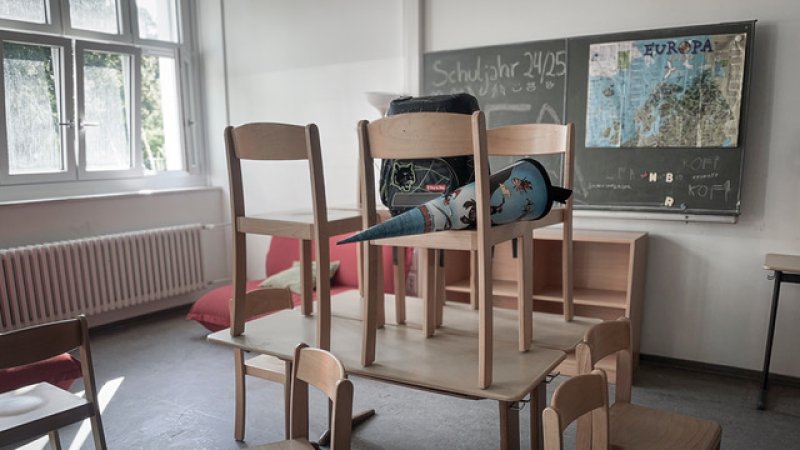There are three options in Brandenburg after elementary school: Oberschule, Gesamtschule or Gymnasium.
The elementary school ("Grundschule") in Brandenburg usually continues for six years. Exceptionally talented children can leave the elementary school after only five years and switch to a secondary school. After elementary school, parents decide what type of secondary school their child attends next. The primary school often makes a recommendation to helps you with the decision. There are three options:
- Oberschule
- Gesamtschule
- Gymnasium
The Oberschule starts with the 7th class and continues to the 10th class. Here your child can graduate with a Berufsbildungsreife, erweiterte Berufsbildungsreife or a Fachoberschulreife. There are two types of Oberschule: the kooperative Oberschule and the integrative Oberschule.
In a kooperative Oberschule, from the second semester of the 7th class, students are divided into two classes, based on the school-leaving certificate they intend to obtain. That means in the 7the grade, your child has to decide with what kind of diploma he or she wants to graduate. Although switching would also be possible later. Unlike kooperative Oberschule, in an integrativen Oberschule, all students attend same classes. There, the children have two different courses per subject each with different requirements. In both types of Oberschule, your child can choose the type of school-leaving certificate they want to obtain until the 9th grade. Any of the three school-leaving certificates at this stage would suffice to start vocational training ("Berufsausbildung"). Children with a Fachoberschulreife and good grades can also switch to a Gymnasium and do an Abitur.
The Gesamtschule starts with the 7th grade and ends with the 10th or 13th grade. In these schools, all students attend similar classes regardless of the school-leaving certificate they have in mind. In some subjects, however, there are two courses with different requirements. Students can obtain three types of school-leaving certificates from a Gesamtschule: Berufsbildungsreife or erweiterte Berufsbildungsreife (after 9th class), Fachoberschulreife (after 10th class) or an Abitur (upon finishing the 13th class) . All of these certificates qualify a student to start vocational training ("Berufsausbildung"). With an Abitur, your child would be able to choose between doing an "Ausbildung" and going to university.
In a Gymnasium, students do their Abitur after the 12th class. In these schools, students have to study intensively and be very diligent and learn at least two foreign languages. Many Gymnasiums have particular focus areas such as science, music & arts, languages or sports. Those who leave the Gymnasium after the 9th or 10th grade often automatically obtain the Berufsbildungsreife or erweiterte Berufsbildungsreife . With an Abitur, your child will have a choice between vocational training ("Berufsausbildung") and university education.
Once you leave the initial reception facility, your child must start school. Children and teens who have never been residing in a reception centre must go to school six weeks after they have been granted a residence permit or a temporary tolerated residence permit ("Duldung").
To enrol your child at a school, go directly to the nearest elementary or secondary school of your choice. All the schools in Brandenburg are listed on bildung-brandenburg.de. There, your child's health will be examined by the school doctor, and his language skills will also be evaluated. Children who do not speak German yet are initially tutored in special German courses.
The staff at your accommodation centre can assist you in the registration process.
You must register your child at the designated elementary school by the end of February. The primary school responsible for your child is the one closest to your home. The municipality or local administration can help you find the proper school. You can also search schulliste.eu for the nearest elementary school to your place of residence. During registration, your child will be examined by a doctor, and his/her German language skills will be checked.
The staff in your child's kindergarten can provide you pieces of advice about the process.
Information and regulations that apply in all federal states.
Schools in Germany
Education in Germany is regulated at the federal state level, meaning each of the 16 federal states has its school sy
